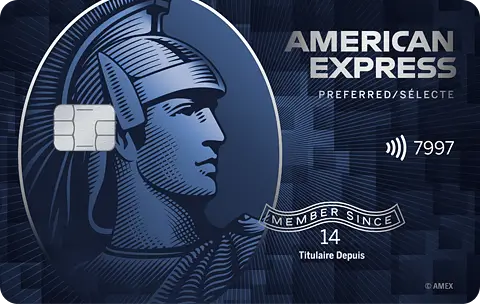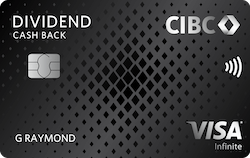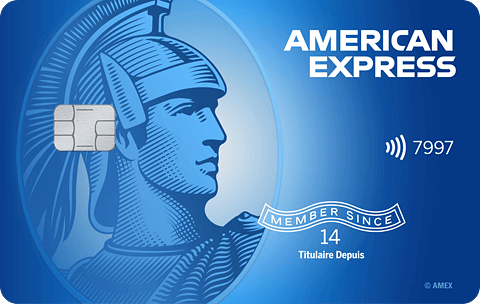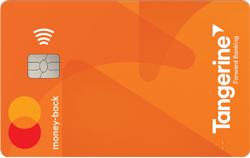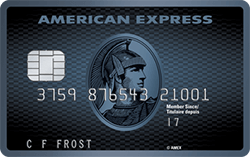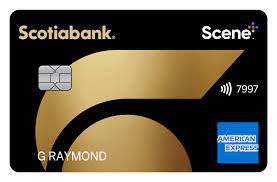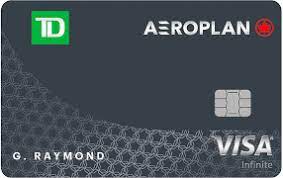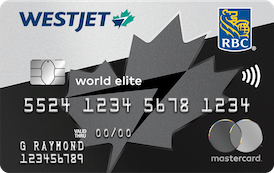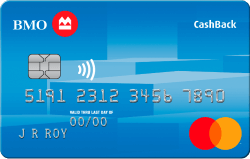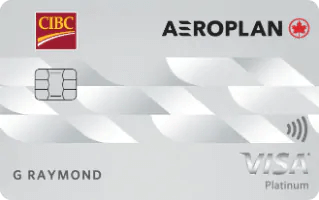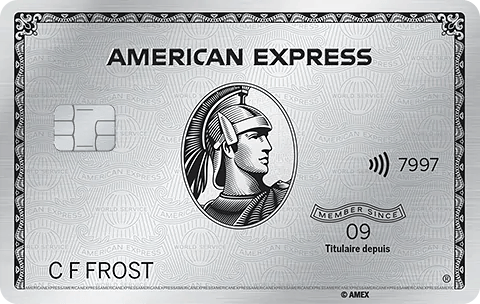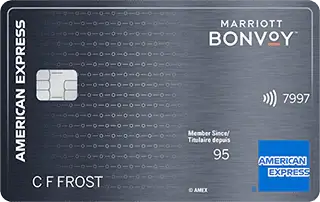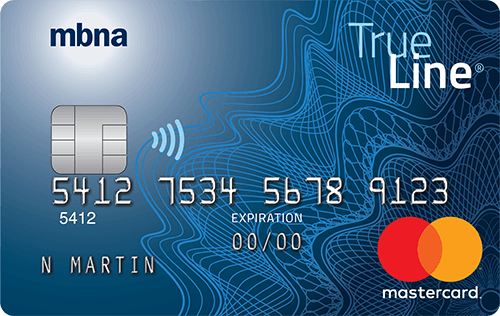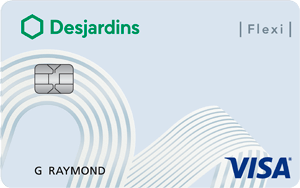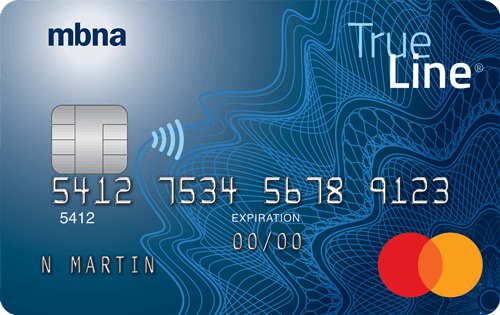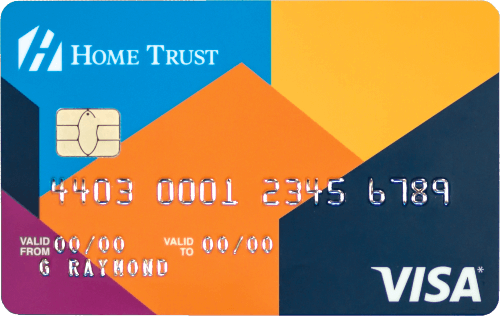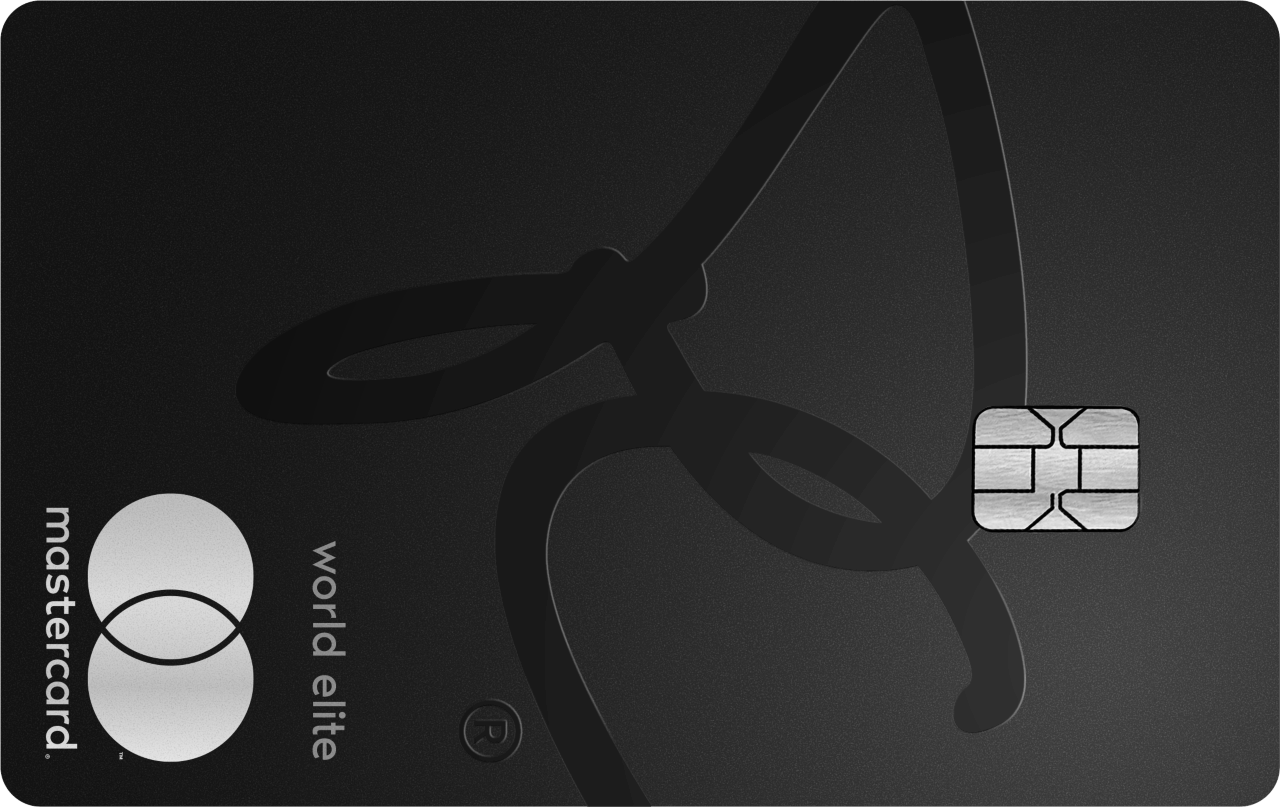The best credit cards in Canada for 2024
Whether you’re looking for rewards, low fees or valuable perks like travel insurance or airport lounge access, we can help.
Why trust us
MoneySense is an award-winning magazine, helping Canadians navigate money matters since 1999. Our editorial team of trained journalists works closely with leading personal finance experts in Canada. To help you find the best financial products, we compare the offerings from over 12 major institutions, including banks, credit unions and card issuers. Learn more about our advertising and trusted partners.
The best credit cards in Canada by category
When Canadians use the right credit card, they could save hundreds, if not thousands, of dollars per year. Plus, when you use your credit card wisely by paying off your balance in full and on time, you’ll boost your credit score.
| Best cards by category | Why we love it |
|---|---|
| Best cash back overall SimplyCash Preferred Card from American Express Annual fee: $120 | 4% back on groceries and gas, and 2% back on all other purchases |
| Best no-fee cash back card SimplyCash Card from American Express Annual fee: $0 | At least 1.25% back on all purchases, with no annual fee |
| Best overall travel rewards credit card American Express Cobalt Annual fee: $156 | Some of the highest earn rates in Canada (with up to 5x the points on dining and groceries), combined with a flexible points, equals your best return on spending |
| Best airline travel credit card (Aeroplan) TD Aeroplan Visa Infinite Card Annual fee: $139 | High earn rates on gas, groceries and Air Canada purchases, easy redemptions and a $100 Nexus fee rebate every 2 years |
| Best airline travel credit card (WestJet) WestJet RBC World Elite Mastercard Annual fee: $119 | 1.5% earn rate paired with an annual round-trip companion voucher on WestJet |
| Best cash back credit card for students BMO CashBack Mastercard for students Annual fee: $0 | 3% back on groceries and the ability to redeem rewards at any time |
| Best travel credit card for students CIBC Aeroplan Visa Card for Students Annual fee: $0 | Good return on spending, plus a few travel benefits and student-friendly perks |
| Best credit card for premium perks American Express The Platinum Card Annual fee: $799 | $400 in travel and restaurant credits, unlimited airport lounge access, hotel upgrades and more |
| Best hotel credit card Marriott Bonvoy American Express Annual fee: $120 | Redemptions for free stays at over 30 hotel brands (from Marriott to Ritz-Carlton), plus point transfers to partner airline programs |
| Best low-interest credit card MBNA True Line Gold Mastercard Annual fee: $39 | 8.99% purchase interest rate—the lowest fixed rate of any card currently issued in Canada |
| Best no fee low-interest credit card Flexi Visa Annual fee: $0 | 10.90% purchase interest rate, with no annual fee |
| Best balance transfer credit card MBNA True Line Mastercard Annual fee: $0 | You can earn a 0% promotional annual interest rate (“AIR”) for 12 months on balance transfers completed within 90 days of account opening, with a 3% transfer fee. |
| Best secured credit card Home Trust Secured Visa (low-rate option) Annual fee: $0 | Guaranteed approval regardless of credit score, with the option to pay no annual fee or receive a low APR (annual percentage rate) of 14.90% if you opt to pay an annual fee |
| Best store credit card PC Financial World Elite Mastercard Annual fee: $0 | Highest rate of return on spending at one of the largest retail networks in the country |
Best overall cash back credit card
At a glance: With stellar returns on groceries and gas, a higher-than-average base earn rate, and a host of Amex benefits, the SimplyCash Preferred Card from American Express takes the top spot for cash back credit cards.
SimplyCash Preferred from American Express
- Annual fee: $120
- Earn rate: 4% cash back on eligible gas and grocery purchases; 2% cash back on everything else
- Welcome offer: You can earn a $40 statement credit for each monthly billing period in which you spend $750 in purchases on your card.
- Annual income requirement: None
- Recommended credit score for approval: 660 or higher
- Interest rates: 20.99% on purchases, 21.99% on cash advances
Pros
- Unlike other comparable cash back credit cards with a 0.5% to 1% base rate, the SimplyCash Preferred card guarantees at least 2% cash back on every dollar spent, regardless of spending category, whether in-store or online. That’s double or quadruple the advantage over comparable cash back cards. Plus, there’s no limit to how much you can earn at this rate.
- With gas and groceries being two major spending categories for most Canadians, the 4% returns add up quickly. For example, spending $200 per month on gas and $400 on groceries would net you $288 cash back annually.
- The limit on bonus categories is so generous that most card holders likely won’t reach them. You would have to spend nearly $2,500 per month on groceries and gas, to max out your earnings in these categories.
- Set up your family members with supplementary cards to earn even more for no additional fee. Typically, extra cards run between $30 and $50 per card annually.
- Access Amex benefits, including dining and retail experiences and Amex Front of the Line, which gets you early access to event tickets. Receive bonus points or statement credits through Amex Offers tailored to you.
- Comes with an insurance package that includes $100,000 in travel accident insurance and $500 in combined baggage and flight delay coverage. The most impressive insurance packages generally come with travel credit cards, so this is a rare perk for a cash back card.
Cons
- Although American Express is accepted at tens of thousands of locations across Canada, there are places that don’t take the card, including Loblaw-affiliated stores. Plus, independent retailers and mom-and-pop shops are more likely to accept Visa and Mastercard.
- Unlike with some credit cards, you don’t have any flexibility as to when you can redeem your rewards. Cash back is only redeemed once annually, in September.
Honourable mention
At a glance: With a focus on gas and grocery purchases, the CIBC Dividend Visa Infinite provides many opportunities to rake in the rewards, and unlike with the SimplyCash Preferred, you can redeem your rewards at any time.
CIBC Dividend Visa Infinite
- Annual fee: $120
- Earn rates: 4% cash back on eligible gas, EV charging and grocery purchases; 2% on dining, daily transit and recurring payments; and 1% on everything else
- Interest rates: 20.99% on purchases, 22.99% on cash advances, 22.99% on balance transfers
- Welcome bonus: You can earn 10% cash back welcome bonus of up to $250 (first 4 statements). Offer not available to QC residents. Terms and conditions apply.
- Recommended credit score for approval: 725 or higher
- Annual income requirement: Personal income of $60,000 or household income of $100,000
Pros
- Earn 4% on gas and groceries, as well as on charging your electric vehicle (EV). Spends in other common categories—dining, recurring bills, and transportation—get a 2% return.
- Get further discounts on gas, to the tune of up to $0.10 per litre, when you use your Journie Rewards card along with your CIBC Dividend Visa when you fill up at Pioneer, Fas Gas, Ultramar or Chevron gas stations.
- As long as you have accumulated $25 in rewards, you can redeem your cash back anytime.
Cons
- The caps on bonus earn rates are more restrictive than with some other cards. Once you spend $20,000 within your bonus categories or $80,000 overall, all additional purchases earn 1% cash back. This resets the day after your December statement is issued.
- Like with other cards that are part of the Visa Infinite program, this credit card’s income requirement may put it out of reach for some Canadians.
Best no-fee cash back card
At a glance: If you’re looking for a solid minimum base rate plus many of the same benefits of the SimplyCash Preferred, but you don’t want to pay an annual fee, the Simply Cash Card from American Express is a strong option. It shines with a 1.25% base earn rate—a full 0.75% more than most no-fee cards. Accelerated rates on gas and groceries make this a functional and affordable choice.
SimplyCash from American Express
- Annual fee: $0
- Earn rate: 2% cash back on eligible gas and grocery purchases up to $300 annually; 1.25% cash back on everything else
- Welcome offer: You can earn a $10 statement credit for each monthly billing period in which you make at least $300 in purchases (for a total value of up to $100).
- Annual income requirement: None
- Recommended credit score for approval: 660 or higher
- Interest rates: 20.99% on purchases, 21.99% on cash advances
Pros
- The base earn rate of 1.25% is pretty good for a no-fee card. Most other comparable cards, especially those offered by the big banks, offer a low 0.5% base earn rate.
- With 2% cash back on the first $15,000 spent on groceries and gas, you have the potential to earn $300 annually in those categories alone.
- No limit on the amount of cash back you can earn at the 1.25% rate.
Cons
- You can’t access your cash back anytime. Instead, it’s applied to your account as a statement credit once a year in September.
- American Express is less widely accepted in Canada than Visa or Mastercard, so you might want to also carry a secondary credit card to use at certain stores, including Costco and Loblaws.
Honourable mention
At a glance: The Tangerine Money-Back Credit Card delivers unlimited cash back rewards at generous earn rates—all with no annual fee. You can earn 2% cash back on two categories of your choice, or three categories if you deposit rewards into a Tangerine savings account instead of back onto your credit card.
Tangerine Money-Back Credit Card
- Annual fee: $0
- Earn rates: 2% in up to 3 categories of your choice (including groceries, gas and dining) and 0.5% cash back on everything else
- Welcome bonus: You can earn an extra 10% back on up to $1,000 in everyday purchases within the first 2 months. Must apply by April 30, 2024.
- Annual income requirement: Personal or household income of $12,000
- Recommended credit score: 660 or higher
- Interest rates: 19.95% on purchases, 19.95% on cash advances and 19.95% on balance transfers
Pros
- You can customize your cash back rewards on your frequent spending categories with no annual earn limits.
- The $12,000 annual income requirement makes the card an accessible option with competitive perks for Canadians.
- You can save money on balance transfers, since it features a 1.95% promotional balance-transfer interest rate for new cardholders on six consecutive credit card statements, and a 1% balance transfer fee during this period. This is very low compared to the standard balance transfer fee of 3%.
Cons
- The card does not have any insurance coverage, lacking options for auto, mobile device and travel medical expenses. However, if your annual income is at least $60,000 (or $100,000 as a household), you could qualify for the Tangerine World Mastercard, which offers perks like mobile device and rental car insurance.
- The 0.5% base earn rate is low, although you can earn more rewards in your designated categories.
Best overall travel rewards credit card
At a glance: The American Express Cobalt card impresses with some of the highest earn rates on top spending categories like “eats and drinks,” which includes any spends at from grocery stores to coffee shops to food delivery. Plus, the travel points are easy to redeem, and you have more redemption options to choose from than with other travel cards in Canada. When you use Amex points for travel you can boost their value by transferring them to other loyalty programs, like Aeroplan and Marriott Bonvoy, too. A strong insurance package sweetens the deal.
American Express Cobalt
- Annual fee: $156
- Earn rate: 5 points per $1 spent on dining and groceries; 2 points per $1 spent on transit and gas; and 1 point per $1 spent on all other purchases
- Welcome offer: You can earn 1,250 points for each month you spend $750, up to a maximum of 15,000 points.
- Annual income requirement: None
- Point value: 1 Amex Membership Rewards point = $0.01 when redeemed with the Flexible Points Travel Program, $0.015 on average with the Fixed Points Travel Program, and up to $0.02 with airline points transfers
- Recommended credit score for approval: 725 or higher
- Interest rates: 21.99% on purchases, 21.99% on cash advances
Pros
- You can rack up points rather quickly as this credit card has some of the highest earn rates of any travel card in Canada, with 5 points per dollar on groceries and dining.
- Bonus categories are expansive, meaning that you’ll get boosts on more purchases. The travel and transit category is robust and includes flights, hotels and vacations, as well as gas, public transportation, taxis and rideshares—earning you 2 points per dollar on all these purchases.
- You can easily redeem your points on any airline three different ways based on your preferences: redeem for any travel expense charged to your card at a flat, easy-to-understand rate of 1 point for $0.01 in travel savings; transfer them to a participating airline or hotel loyalty program (including Aeroplan) at a 1:1 ratio, which basically doubles their value; or use the Fixed Points Travel chart to find a favourable rate without worrying about the carrier or blackout dates.
- There’s no fee for supplementary cardholders so you can earn more points, faster.
Cons
- The American Express card is not as widely accepted as Visa or Mastercard.
- The annual fee, charged at $12.99 monthly, comes out to $155.88, which is a noticeable jump from the $120 charged by comparable cards.
- Unlike our honourable mention pick below, the Scotia Gold American Express, this Amex card does not waive foreign transaction fees, so you’ll be paying an extra 2.5% on top of exchange fees for purchases made abroad.
- Although there’s an included comprehensive travel insurance package, it does lack trip cancellation coverage.
Honourable mention
At a glance: With healthy earn rates in popular (and broadly defined) spending categories, flexible redemptions, comprehensive travel insurance, and valuable perks like no foreign exchange fees, the Scotiabank Gold American Express is a strong challenger to the Amex Cobalt.
Scotiabank Gold American Express
- Annual fee: $120
- Earn rates: 6 points per $1 spent at Sobeys-affiliated stores; 5 points per $1 on dining, entertainment and groceries; 3 points per $1 on gas, transit and streaming; 1 point per $1 on everything else
- Welcome offer: You can earn up to $650 in value in the first 12 months, including up to 40,000 bonus Scene+ points. Must apply by July 1, 2024.
- Annual income requirement: $12,000
- Point value: 1 Scene+ point = $0.01 when redeemed for travel, store purchases and food and drink at Cineplex and Scene partners
- Recommended credit score for approval: 700 or higher
- Interest rates: 20.99% on purchases, 22.99% on cash advances, 22.99% on balance transfers
Pros
- Like the Cobalt, the Scotiabank Gold American Express card has healthy earn rates of up to 5 times the points in top categories, with the biggest boost being 6 points per dollar at a handful of popular grocers, including Sobeys and FreshCo.
- You can redeem your points retroactively, if you wish, using the Apply Points to Travel option, meaning you can apply points to travel purchases made on your card for up to one year later—a huge and rare benefit. Its flexibility of what counts as travel purchases is another standout. In addition to flights and hotels, Scotia considers Airbnb rentals, car shares, public transportation fares and taxis travel expenses.
- You don’t have to have only points value to redeem rewards. You can redeem for travel purchases with a mix of point rewards and paying for the remainder owing yourself.
- This card does not charge you foreign transaction fees on purchases made in foreign currencies, which is not only a valuable travel perk, but also great for online or cross-border shoppers.
- The included travel insurance package is one of the best on the market in Canada, and you’re covered for trip cancellations for up to $1,500.
Cons
- Scene+ is a fixed rate program which means the point value is always $0.10 per point on travel purchases. Some dynamic programs like Aeroplan, for example, may be able to offer better value during some time periods.
- Although the foreign transaction fees are waived, you’ll only earn the base rate of 1 point per dollar on transactions in another currency, regardless of the bonus category.
- You might want to carry a secondary Visa or Mastercard for merchants who don’t accept American Express.
Best airline travel credit card
For Aeroplan
At a glance: While the fastest way to accumulate Aeroplan points may be to use the Amex Cobalt—the best travel rewards card overall ranked by MoneySense—and then transfer your Amex points one to one, the TD Aeroplan Visa Infinite Card offers a branded Aeroplan card with simple redemptions. Of the 11 Aeroplan cards on the market, this card has a few differentiators like the $100 Nexus fee rebate that earn it the top spot.
TD Aeroplan Visa Infinite Card
- Annual fee: $139
- Earn rates: 1.5 Aeroplan points per $1 spent on gas, groceries and purchases made directly through Air Canada (including vacation packages), and 1 point per $1 on all other purchases
- Welcome bonus: You can earn a welcome bonus of 10,000 Aeroplan points when you make your first purchase with your new card; earn 20,000 Aeroplan points when you spend $6,000 within 180 days of Account opening. Conditions apply. Account must be approved by June 3, 2024.
- Anniversary bonus: Earn a one-time anniversary bonus of 20,000 Aeroplan points when you spend $10,000 within 12 months of opening the account. Conditions apply. Account must be approved by June 3, 2024.
- Annual income requirement: Personal income of $60,000 or household income of $100,000
- Point value: Aeroplan points are worth $0.02 on average
- Recommended credit score for approval: 660 or higher
- Interest rates: 20.99% on purchases, 22.99% on cash advances, 22.99% on balance transfers
Pros
- The earn rates are good and you can get the Aeroplan Status Qualifying Miles that help you advance in Aeroplan status on everyday purchases, putting you closer to unique Air Canada benefits, like priority seat selection, free checked bags, airport lounge access and eUpgrades like free Wi-Fi, faster.
- Although Aeroplan is an Air Canada loyalty rewards program, you can redeem points on a dozen Star Alliance partner airlines like United and Lufthansa, giving you more flexibility to redeem your points.
- You’ll earn valuable perks like free first checked bags for up to eight travel companions on North American flights and a $100 Nexus fee rebate every 48 months.
- Get emergency medical travel coverage for longer than with other cards. That’s 21 days, or four days for those 65 and older. It also has a competitive insurance package that includes hotel-motel burglary coverage. Depending on what you prioritize for travel insurance, this card may be the best Aeroplan option for most Canadians.
Cons
- Technically, you can earn more Aeroplan points by using a card like the Amex Cobalt and transferring rewards to Aeroplan at a one-to-one value. However, if you’re looking for simplicity or for the best Aeroplan specific card, this is our top pick.
- Aeroplan offers a tonne of potential value, but as a dynamic program with fluctuating point values, it’s not ideal for cardholders who want a very straightforward rewards structure.
- The annual fee of $139 is higher than some other cards in its category.
Best Aeroplan alternative
CIBC Aeroplan Visa Infinite
For those who already bank with CIBC, it’s worth noting that the CIBC Aeroplan Visa Infinite is a nearly identical card, offering the same earn rates, many of the same benefits (though no Nexus rebate), and similar insurance. With the CIBC card, emergency medical coverage is $5 million as compared to the $2 million offered by the TD card. However that coverage is only available for 15 days (or three days for those 65 and up). CIBC also offers a supplementary card for $50, which is $25 less than the TD card.
Best airline travel credit card
For WestJet
At a glance: If your airline of choice is WestJet, this creditncard is worth considering. It not only provides a strong base rate of 1.5% in WestJet reward dollars and a simple redemption process, but it also has some worthy perks like an annual round-trip companion voucher and a free first checked bag for you and up to eight travel companions.
WestJet RBC World Elite Mastercard
- Annual fee: $119
- Earn rate: 2% back in WestJet dollars on WestJet flights and vacations packages and 1.5% back on all other purchases
- Welcome offer: You can earn up to $450 in WestJet dollars with the WestJet RBC World Elite Mastercard. Plus, get a Round-Trip Companion Voucher Every Year – for any WestJet destination starting from $119 CAD (plus taxes, fees, charges and other ATC).
- Annual income requirements: Personal income of $80,000 or household income of $150,000
- Point value: 1 WestJet Dollar = $1 CAD when redeemed for eligible flights or vacation packages
- Recommended credit score: None specified
- Interest rates: 20.99% on purchases, 22.99% on cash advances
Pros
- Each year, receive a round-trip companion voucher to anywhere WestJet flies which means you can book a companion fare at a reduced rate after paying full price for a plane ticket. Or, instead of using the companion voucher, you can exchange it for four airport lounge visits.
- You get up to three $500 Status Lifts annually when you meet annual spend requirements, which are designed to help you reach the next tier faster, giving you access to benefits like lounge access.
- You’ll earn a minimum of 1.5% in WestJet dollars on every purchase on your card, and 2% on WestJet flights or vacations.
- The WestJet rewards program is simple, with 1 point equalling $0.01 in savings on Westjet flights or vacation packages. There are no complicated charts to consult and no blackout periods for booking.
Cons
- The round-trip companion voucher is only applicable to the base rate of your flight so you’ll still have to pay taxes, airport fees, and air transportations charges–levies that make up the bulk of your ticket price.
- WestJet dollar rewards cannot be used with other airline purchases or programs.
Best student credit cards
For cash back
At a glance: This card balances no annual fee with an extraordinary cash back rate of 3% on groceries, giving students the opportunity to get a little money back on their spending. The flexible redemption policy, which lets you redeem when and how you wish, makes this one of the best credit cards for students and others with fluctuating incomes.
BMO CashBack Mastercard for Students
- Annual fee: $0
- Earn rates: 3% cash back on groceries (on the first $500 per month), 1% on recurring bills and 0.5% on everything else
- Welcome offer: You can earn 5% cash back in your first 3 months. Conditions apply.
- Annual income requirement: None
- Recommended credit score: 660 or higher
- Interest rates: 20.99% on purchases, 22.99% on cash advances and 22.99% on balance transfers
Pros
- Earn 3% cash back on groceries, the highest return on groceries for a no-fee credit card in Canada. You also get 1% back on recurring bills.
- You can redeem your cash when you wish, and have it applied to your credit account, added to your BMO InvestorLine account, or deposited into your BMO chequing account.
Cons
- The boosted spending categories on groceries and recurring bills have a low monthly cap of $500 each, meaning that any purchases above that amount in either category will earn at the much lower 0.5% base rate. However, for many students, $500 limits in these categories may be more than sufficient.
For travel
At a glance: The CIBC Aeroplan Visa Card for Students bundles the ability to earn Aeroplan rewards with a few travel benefits and student-friendly perks to deliver a competitive package for no annual fee. Your points are valuable with this card, as Aeroplan points are worth double many other reward programs at an average value of $0.02 per point.
CIBC Aeroplan Visa Card for Students
- Annual fee: $0
- Earn rates: 1 point per $1 spent on gas and EV charging, groceries and Air Canada purchases, and 1 point per $1.50 on everything else
- Welcome offer: Earn 10,000 Aeroplan points when you make your first purchase ($200 value).
- Interest rates: 20.99% on purchases and 22.99% on cash advances
- Annual income requirement: None
- Point value: Aeroplan points are worth $0.02 on average
- Recommended credit score: None specified
Pros
- Use your points on any available Air Canada seats without any blackout dates. Or, use them with any of Aeroplan’s many partners such as United and Aer Lingus.
- You can often get preferred pricing so you can often book flights using fewer points and you can pay for flight rewards with a combination of points and cash.
- Free SPC membership is included, giving you access to discounts and giveaways, and you’ll save up to $0.10 off per litre when you buy gas at participating stations with Journie Rewards.
Cons
- Unlike other Aeroplan credit cards, you won’t earn Status Qualifying Miles on your everyday purchases.
- The Aeroplan points program isn’t the most intuitive for first-time card holders, because point values fluctuate based on a regional chart. You’ll have to be strategic with booking your flights to get the most bang for your buck.
- Outside of spending on eligible gas, EV charging, groceries and bookings with Air Canada directly, your base earn rate is relatively low at 1 point per $1.50 spent on everyday purchases—which could limit your earnings.
Best credit card for premium perks
At a glance: Before you baulk at the steep $799 annual fee, know that the Platinum Card from American Express offers incredible perks, making that cost worth it. With an annual $200 travel credit, unlimited access to the widest range of airport lounges, premium insurance coverage, hotel upgrades and Platinum Concierge services, it’s a standout even among other top-tier premium cards for frequent travellers.
American Express Platinum
- Annual fee: $799
- Rewards: 2 points per $1 on dining and food delivery; 2 points per $1 on travel, plus 1 additional point on purchases booked through Amex Travel Online; 1 point per $1 on everything else.
- Welcome bonus: You can earn up to 100,000 rewards points ($1,000 value). Conditions apply.
- Annual income requirement: None
- Point value: 1 Amex Membership Rewards point = $0.01 when redeemed with the Flexible Points Travel Program, $0.015 on average with the Fixed Points Travel Program, and up to $0.02 with airline points transfers
- Recommended credit score: 760 or higher
- Interest rates: N/A (as a charge card, you’re required to pay off your balance in full every month)
Pros
- The generous $200 annual travel credit essentially reduces the annual fee to $599—it’s still a lot, sure, but there are more perks that make it worth it for the frequent traveller (like lounge access, insurance, hotel upgrades and more.
- Every four years, receive a $100 credit towards a Nexus fee.
- You would gain access to the Amex’s Fixed Points Travel program, which allows you to transfer points to dozens of other loyalty programs.
Cons
- The Platinum Card is a charge card, which means you’ll need to pay off the balance in full every month. This explains why there is no listed interest rate.
Best hotel credit card
At a glance: This hotel-centric card lets you earn Marriott Bonvoy points on every purchase which you can redeem for service upgrades like free Wi-Fi, experiences like spa treatments and fine dining, as well as hotel stays at more than 30 hotel chains in 130 countries. You can even transfer points to around 40 other airline programs, including Aeroplan, Delta SkyMiles and Virgin Atlantic.
Marriott Bonvoy American Express
- Annual fee: $120
- Earn rates: 5 points per $1 at Marriott properties, 2 points per $1 everywhere else
- Welcome offer: Earn up to 80,000 points. Offer ends May 6, 2024.
- Annual income requirement: None
- Point value: 1 Marriott Bonvoy point = $0.0117 on average when redeemed for eligible flights or hotel stays.
- Recommended credit score for approval: 725 or higher
- Interest rates: 20.99% on purchases, 21.99% on cash advances
Pros
- Marriott Bonvoy points are very flexible so you can access hotel-related upgrades, services, and free nights at hotels including St. Regis, The Ritz-Carlton and Westin. They can also be redeemed for merchandise and experiences, and for travel expenses including car rentals and flights.
- Earn a generous 2 points per dollar base rate and a massive 5 points per dollar spent on all Marriott hotel stays with no annual limit on earnings, which can really add up for frequent travellers. Plus, after you reach $30,000 in total spending on the card during one year, you’ll be upgraded to Marriott Bonvoy Gold Elite status and unlock additional perks.
- Annual perks include one free night’s stay at a Marriott property and 15 Elite Night Credits to help you achieve the next level of status.
- Popular Amex benefits—like Front of the Line and dining, retail and wellness experiences—are included with this card.
Cons
- The ability to transfer points to airline programs is appealing, but at three-to-one for most transfers, the point-to-miles ratio could be stronger.
- Marriott Bonvoy has a dynamic pricing structure which means that you’ll get less value for your points if you book on peak dates or times.
- As an Amex, this card is less widely accepted than Mastercard or Visa.
Best low-interest credit card
At a glance: If you’re looking for a low-interest credit card, you won’t find a more competitive APR than this card’s 8.99%. For those who frequently carry a balance, the modest $39 annual fee is more than worth it. The savings on interest charges with this card could easily outweigh the value of rewards you’d earn with a rewards or cash back credit card if you can’t pay off your balance. Plus, despite not offering a promotion on balance transfers, the transaction fee of 1% is lower than many comparable cards, so it’s something to consider, if you’re transferring a balance.
MBNA True Line Gold Mastercard
- Annual fee: $39
- Interest rates: 8.99% on purchases
- Welcome offer:
- Earn rates: None
- Annual income requirement: None
- Recommended credit score for approval: 660 or higher
- Interest rates: 24.99% on cash advances, 8.99% on balance transfers
Pros
- With an APR of 8.99%, this card has the lowest fixed interest rate of any credit card in the market in Canada.
Cons
- The annual fee is slightly higher than some comparable cards, but the significantly lower interest on purchases should make up the difference.
Best no-fee low-interest credit card
At a glance: For those seeking a low interest credit card with no annual fee, we recommend the Desjardins Flexi Visa. While the 10.90% APR is slightly higher than with the MBNA True Line Gold Mastercard, there is no annual fee. Plus, the Flexi Visa has a few nice perks like three-days worth of travel insurance and mobile device coverage. These types of perks are rare among low-interest credit cards.
Flexi Visa
- Annual fee: $0
- Earn rates: None
- Welcome offer: None
- Annual income requirement: None
- Recommended credit score: Not specified
- Interest rates: 10.90% on purchases and 10.90% on cash advances
Pros
- This card has the lowest regular purchase interest rate in Canada for a no fee card.
- Comes with travel insurance for up to three days, plus trip cancellation and baggage coverage—more than suitable for a weekend trip.
- The emergency medical coverage applies to travellers ages 75 and under, whereas coverage stops at age 65 with some cards.
- Get discounts on some car rentals.
- If you buy a new mobile device using this card, it will be covered for loss, theft, accidental damage or mechanical failure up to $1,000.
Cons
- There is a lower interest rate available if you’re willing to pay an annual fee.
- If you prefer in-person support, note that Desjardins only has physical branches in Ontario and Quebec.
- While travel insurance of any kind on a no-fee low-interest card is extremely impressive, coverage is available for only trip of up to three days.
Best balance transfer credit card
At a glance: When it comes to making balance transfers, our pick is the MBNA True Line Mastercard, which has a 12.99% interest rate and edges out its nearest competitor, the Scotia Value Visa, because it has no annual fee. That said, this credit card’s 3% balance transfer fee is much larger than the 1% commanded by the Value Visa, so you might want to consider the latter if you’re transferring a major balance.
MBNA True Line Mastercard
- Annual fee: $0
- Interest rates: 12.99% on purchases
- Balance transfer offer: You can earn a 0% promotional annual interest rate (“AIR”) for 12 months on balance transfers completed within 90 days of account opening, with a 3% transfer fee.
This offer is not available for residents of Quebec.
- Earn rates: None
- Annual income requirement: None
- Recommended credit score for approval: 660 or higher
- Interest rates: 24.99% on cash advances, 12.99% on balance transfers
Pros
- You can earn a 0% promotional annual interest rate (“AIR”) for 12 months on balance transfers completed within 90 days of account opening, with a 3% transfer fee.
This offer is not available for residents of Quebec.
- This welcome offer gives you a full year interest-free to get on top of your debt.
- You can add up to nine additional users with supplementary cards for no extra fee.
Cons
- The transfer fee of 3% (with a minimum fee of $7.50) is higher than some comparable cards, like the Scotia Value Visa, which has a transfer fee of 1%.
- This card is not available to Quebec residents.
Best secured credit card
At a glance: For those with poor or no credit, a secured credit card makes a lot of sense as it allows you the flexibility of using plastic while building up your credit history. What’s great about this Home Trust card is that you’re given a choice: If you’re willing to pay a modest annual fee of $59, you’ll save on interest with a 14.90% purchase APR. Or, if you prefer no fee, you’ll be charged a higher interest rate of 19.99%. We like that this card gives you the option to choose what works best for you.
Home Trust Secured Visa
- Annual fee: $0
- Earn rates: None
- Welcome offer: This card does not have a welcome bonus at this time.
- Annual income requirement: None
- Recommended credit score: 300 or higher
- Interest rates: 19.99% on purchases and 19.99% on cash advances
Pros
- Save on interest with a 14.90% APR when paying the $59 annual fee. If interest isn’t an issue, you can get the same card for no annual fee.
- When you use your card, Home Trust will report your activity to both TransUnion and Equifax which helps you build your credit rating if you pay your bills on time.
Cons
- Unlike with the Neo secured card, another strong credit card contender in this category, you won’t earn any rewards on your spending. However, this is typical for a secured card, which prioritizes a low interest rate.
- The minimum deposit for the Home Trust secured credit card is $500, which is far higher than the $50 required by some issuers.
- This card is not available to residents of Quebec.
Best store credit card
At a glance: With partner stores across the grocery, pharmacy, clothing and gas sectors, including the entire line-up of Loblaws stores, the PC Optimum program is undoubtedly one of the strongest programs out there for Canadians, and the PC World Elite Mastercard offers the highest value of any store credit card. If you want to redeem points to save on your weekly grocery bill or gas, this card might be for you.
PC Financial World Elite Mastercard
- Annual fee: $0
- Earn rates: 45 PC Optimum points per $1 at Shoppers Drug Mart; 30 points per $1 at Loblaw banner grocery stores (including No Frills), and 10 points per $1 on everything else
- Welcome bonus: You can earn 20,000 PC Optimum points ($20 value).
- Annual income requirement: Personal income of $80,000 or household income of $150,000
- Point value: 10 PC points = $0.01 at Loblaws grocery network and Shoppers Drug Mart
- Recommended credit score for approval: 560 or higher
- Interest rates: 21.99% on purchases, 22.97% on cash advances (21.97% for residents of Quebec), 22.97% on balance transfers
Pro
- For those who shop at affiliated stores, the potential earnings are fantastic. For example, you’ll get 45 points per dollar at Shoppers Drug Mart which is a 4.5% return. Groceries purchased at Loblaws banner stores like Real Canadian Superstore, Fortinos and No Frills earn 30 points per dollar—that’s 3% back.
- You can stack points by showing your PC Optimum Card or using your PC Financial Card, helping you reach your rewards goals even faster.
- Redemption is simple with 10,000 being valued at $10, and you can cash in your points at checkout to reduce your bill.
Con
- You’ll need to make $80,000 per year (or $150,000 for the household) to qualify.
- In addition to the income requirement, you have to spend $15,000 annually to maintain your eligibility for the card. Should you fail to do so, you’ll be downgraded to PC’s lower-tier World or entry-level PC Mastercard.
Our selection process
Many websites that compare financial products let computer systems make their credit card recommendations. Using formulas and a list of data points, they crunch the numbers and spit out an “impartial” or “unbiased” list of cards. The problem is credit card recommendations aren’t an exact science—they’re subjective by nature. Do five free airport lounge visits per year trump no foreign transaction fees on international purchases? Answer: Depends who you ask.
Instead of relying on algorithms, MoneySense editors consider and debate how Canadians actually use credit cards. Our editors apply their credit card expertise, extensive research in the fine print (we’ll even phone up the banks!) and knowledge of Canadians’ financial goals to come up with selection criteria that best reflect the category and type of card. Our recommendations are subjective—and yes, open to debate—but they are always made with you in mind.
First off, any credit card issued in Canada has the potential to be featured as one of our picks—not just affiliate partners like some other sites. In most cases, there are only a handful of strong cards in any given category that are worthy of a close point-by-point comparison.
Once we have our shortlist of cards, we dig into the fine print to see how they stack up on the criteria that matter most for the category—it could be the rate of return on your spending (for travel cards), the interest rates offered (for balance transfer and low-interest cards), or the eligibility criteria (for student cards). Oftentimes, it’s a combination of a few factors.
This focus helps us find the products that are mostly likely to help you achieve your goals. In the end, additional features and benefits are often better treated as an added bonus—not the main reason to get a card, but nice to have anyway.
Nope. Any card issued in Canada can be featured here. It’s the only way to maintain our award-winning reputation.
That said, our parent company, Ratehub Inc., works with a lot of financial partners in Canada. When there’s an active partnership, a link is added to cards issued by the partner (they are followed by an asterisk), which allows MoneySense to earn revenue when you click on them and apply. Links are added after the fact and don’t influence our picks. But the money we earn is used to continue producing the quality Canadian personal finance journalism you expect from us. Let’s be honest, it’s a great set-up: We get to showcase the cards we truly want, while still benefiting from the hard work of the Ratehub partnerships team. Read more about how MoneySense makes money.
We can change our credit card picks at any time. However, major changes happen only on occasion. Every now and then, an issuer changes a card’s features, such as the interest rates, earn rates or point values, and we update our lists to reflect that. It’s the only way to make sure we’re recommending the very best products.
You may notice articles like these typically have a recent publication date. That’s because the pages are continuously updated to provide the most accurate and relevant information. Sometimes, we change details like a card’s interest rates and welcome offers. Other times, we update our analysis to ensure we’re helping you make the best financial choices. These changes show that we care about the quality of the information on our pages—making it easier for you to find us.
How credit cards work
When you use a credit card, you’re taking out a short-term loan with a balance that comes due every month. As you pay down your balance, the credit available to you the following month starts to go back up to the maximum credit limit on your card. There are many ways you can use a credit card. For example, many cards can be used for purchases, for balance transfers and/or cash advances. As useful as they are, it’s important to understand how to use credit cards responsibly to avoid falling into financial trouble.
How to calculate credit card interest
Credit card interest is expressed as an annual percentage rate, or APR. It is a fee charged for borrowing money from the credit card issuer. If you’ve paid your credit card balance in full by the end of the billing cycle, you won’t be charged any interest. But if you carry a credit card balance, interest charges begin to accumulate, and you’ll continue to pay interest until you pay your balance back in full.
Though APRs are expressed in annual terms, credit card interest is calculated daily and charged monthly. (The APR represents the total cost of borrowing money for a year.) You can figure out your daily interest rate by dividing your APR by 365 (or 366 during a leap year). For a credit card with a 19.99% APR, your daily rate is 0.0548%.
This means a $1,000 balance will incur $0.54 in interest charges in a single day. And the interest compounds daily, which means that the next day, assuming you don’t make any additional purchases, you’d be charged interest on a total of $1,000.54, and so on. Finally, at the end of the billing cycle, you’re charged interest based on the average daily balance during each one of the days in the billing cycle. So, to determine the amount of interest owed:
- Calculate your daily interest rate by dividing the APR by 365.
- Find your average daily balance by adding up the balances for each day of the billing cycle and dividing it by the number of days in your statement period.
- Multiply your average daily balance by the daily interest rate, and multiply this total by the number of days in the statement period.
That’s why it’s best to pay down your debt as quickly as possible. If you don’t pay off your balance in full by the date noted on your statement, you’ll owe interest, starting on the day that you made your purchase.
Federally regulated financial institutions (think major banks) are required to offer an interest-free grace period of at least 21 days, which begins on the last day of your billing period. Some issuers offer up to 30 days. (Note: This rule doesn’t apply to cash advances or balance transfers.)
What are the advantages of using a credit card?
One of the major benefits of a credit card is convenience. You can simply pay for your purchase knowing you will be billed for the outstanding balance the following month—no need to carry cash in your wallet, plus you can shop online.
Other benefits include the ability to accrue rewards and points—such as cash back or travel points—based on a percentage of your purchases each month; depending on the card you choose, it starts at 1% and goes up to 4%. You can then redeem those points for gift cards, travel or other items offered through the credit card company’s online rewards catalogue.
Credit cards can also help you build credit. Always paying on time will help you achieve a high credit score (650 plus), allowing you to borrow for a mortgage or a car loan in the future at a reasonable interest rate from a financial institution.
Types of credit cards
When it comes to rewards credit cards, the name says it all. These are cards that give you something back when you spend with them, whether it’s points or cash. The more you spend, the more rewards you get. For those who pay off their balance in full every month, these cards can really add value. There are four main types of rewards cards:
Cash back credit cards
Cash back cards offer a rebate credited to your balance, usually calculated as a percentage of the dollar value of your purchases. Most of these cards have accelerated earn rates in certain categories (groceries and gas, for example), and they all have a minimum base rate for spending outside those categories. Your cash back rewards can help you save on anything you can buy with your card. See our picks for the best cash back cards in Canada.
Travel credit cards
These cards offer points or miles to be redeemed towards travel-related purchases such as flights, hotels, cruises and vacation packages. Rewards might not be as straightforward as cash back, but travel points cards can help you save big on upcoming trips, with many offering perks including sign-up bonuses, comprehensive travel insurance and airport lounge access. See our picks for the best travel credit cards in Canada.
Store credit cards
These credit cards gift you with points for everyday purchases that can be redeemed for discounts off items from your favourite retailer. The idea is to reward brand loyalty with valuable benefits. The PC Financial Mastercard and the Canadian Tire Mastercard credit cards are great examples. See our picks for the best store credit cards in Canada.
Hotel credit cards
Similar to travel cards, hotel credit cards reward consumers with points redeemable for hotel stays and perks. These cards are often linked or co-branded with a specific hotel brand or loyalty program, like Marriott Bonvoy or Best Western Rewards.
Whereas typical credit card interest rates range from 19.99% to 22.99%, low-interest rate cards charge 8.99% to 12.99% interest on purchases. These cards don’t usually offer rewards or perks, but the lower rates will save you money if you typically carry a balance. See our picks for the best low-interest credit cards in Canada.
Balance transfer credit cards typically come with an introductory low interest rate. This allows you to transfer a balance from a credit card with a regular interest rate to one with a lower rate, saving you money in interest charges. The promotional interest rates only last for a specified period—for the first 10 months, for example—but this can buy you enough time to pay down your balance with little or no interest. See our picks of the best balance transfer credit cards in Canada.
Student credit cards can help some Canadians establish or build their credit scores. These entry-level cards tend to have few qualification criteria and no annual fees. Compared to other types of cards, they provide few perks or extras, but some do offer rewards. See our picks for the best student credit cards in Canada.
Canadians, including newcomers, who lack a good credit score or a Canadian credit history often have trouble getting approval for standard credit cards. Secured cards offer a solution. This kind of card is “secured” with a deposit—which becomes the card’s credit limit—and virtually anyone can be approved. Using a secured card responsibly will help build or rebuild your credit score. See our picks for the best secured cards in Canada.
Picking the best card: What else to consider
Once you’ve selected the category of card that you want, consider the earn rate, additional benefits and type of points earned with each card. If you happen to spend a lot on gas and groceries, look for a card with a high earn rate for those categories. The annual fee should also be considered. There’s a wide selection of no-fee credit cards in Canada. Although no one likes to pay an annual fee simply to use their card, annual-fee cards typically offer more in perks and value back—meaning you can still easily come out on top financially.
Common credit card protections
When comparing credit cards in Canada, it’s important to consider the protections that come with your chosen card. Here are some of the most common ones:
- Purchase protection: Many credit cards provide purchase protection to cover eligible purchases against loss, damage or theft for a specified period after the purchase is made. The coverage amount and duration can vary among credit cards, so it’s important to review the terms and conditions of your specific credit card.
- Zero liability: In Canada, most credit cards offer zero liability protection, meaning you won’t be held responsible for unauthorized charges made on your credit card account. Nevertheless, it’s extremely important to report any suspicious transactions or unauthorized activity to your card issuer.
- Extended warranty: Some credit cards offer extended warranty protection, which extends the manufacturer’s warranty on eligible purchases for an additional period. This can provide added peace of mind, particularly for higher-value purchases.
- Travel insurance: Certain credit cards may include travel insurance benefits such as trip cancellation/interruption insurance, emergency medical coverage, baggage loss/delay insurance, and rental car insurance. The specific coverage and conditions vary, so review the details of your credit card’s travel insurance policy.
- Fraud protection: Credit card issuers typically have robust fraud protection measures in place. If your credit card is lost or stolen, you can report it to your card issuer immediately, and they will usually deactivate the card to prevent unauthorized use.
Frequently asked questions
Credit cards in Canada work best when you are a disciplined spender. Have only one or two cards in your wallet, and make sure they match your spending habits. And make sure you can pay off the balance in full (or at the very least make the minimum payment) every month, so you don’t have to pay hefty interest on your unpaid balance. This can result in costly fees or in having points knocked off your credit score. With a bit of self-control, credit cards become helpful and convenient financial tools that can make everyday purchases easy.
Your decision for which credit card is best for you and your family will come down to whether a cash back or travel rewards credit card best suits your needs and spending habits. Travel rewards can be lucrative, but what you earn from a cash back card can be spent on anything—or saved.
When considering a cash back card, take stock of your spending habits and pick the card that will earn you the most rewards. For example, if you spend a lot on gas, then pick a card that earns you more cash back at gas stations. High earn rates are great, but keep in mind that many of the top cards have a high income requirement.
Also note that some cash back credit cards will only give you what you’ve earned after you reach a minimum amount or once per calendar year. Find out how you’ll get paid, and make sure you’re okay with it before you apply. If you’re considering a card with an annual fee, make sure the cash back you earn is worth more than the fee. If it’s not, stick to a no-fee card.
Generally speaking, Canadian credit cards that earn you points are usually best used for travel redemptions. These cards will likely give you other ways to cash out your points, but the majority of the time, you get the most value when redeeming for travel. Similar to cash back cards, you want to pick a card that gives you the most points for the categories on which you spend the most money.
You also want to figure out what type of travel you prefer. You could get an airline-branded credit card or a hotel-branded one. There are also credit cards that allow you to redeem for any type of travel. Regardless of what you go with, you need to know how the reward programs work so you can maximize your points.
What does the * mean?
Affiliate (monetized) links can sometimes result in a payment to MoneySense (owned by Ratehub Inc.), which helps our website stay free to our users. If a link has an asterisk (*) or is labelled as “Featured,” it is an affiliate link. If a link is labelled as “Sponsored,” it is a paid placement, which may or may not have an affiliate link. Our editorial content will never be influenced by these links. We are committed to looking at all available products in the market. Where a product ranks in our article, and whether or not it’s included in the first place, is never driven by compensation. For more details, read our MoneySense Monetization policy.
